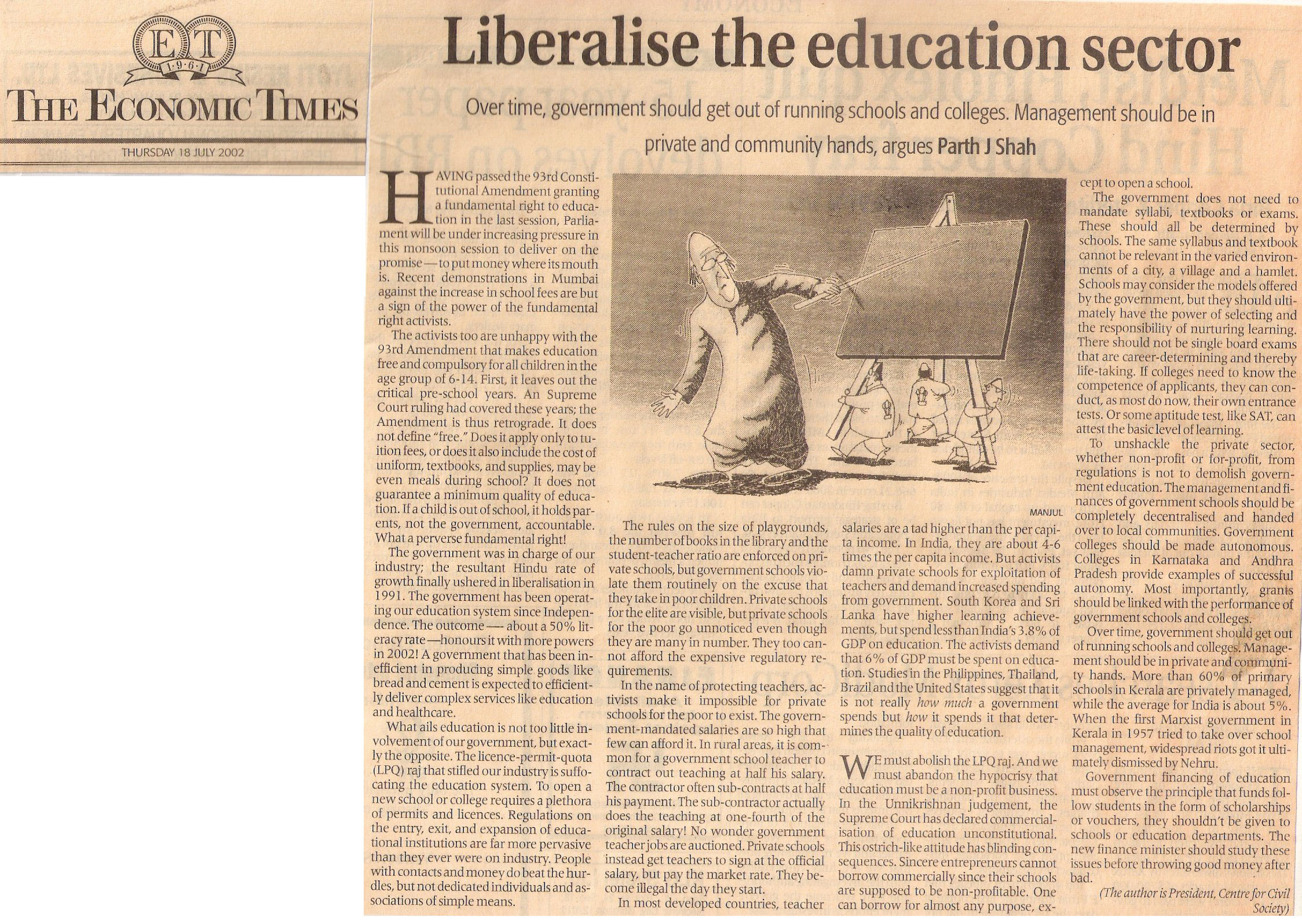Online Articles
Do we have enough water for the future? With water being demanded for domestic consumption, industrial use and irrigation, there is often a tussle between the three regarding their share of water. There are many instances of water being over-used by agricultural belts in some regions of India, and of water being diverted for industrial purposes at the cost of the needs of local domestic use.
There is also a problem regarding water sharing between riparian states. The national environment policy (NEP) 2004 has placed on record the problem of over-use and skewed distribution of river water.
The National Education Choice Campaign promotes reforms that deliver quality education to all through a revolutionary new agenda. A radical new thinking is necessary to save one more generation of our children from being lost to the failing education system. The Campaign invites all to broaden the dialogue and to work towards immediate implementation of reforms.
The government finances its various welfare programmes for the poor largely from the revenue collected through various taxes. If we analyse the tax burden — who actually pays taxes — it seems that the government is taking money from one group of poor to give it to another group of poor. Contrary to the popular perception that middle and upper classes — the better-off in short — of our society are taxed to provide welfare and support to the poor, it is actually the poor who are paying for the welfare programmes run for their benefit!
The licence-permit-quota raj and the high walls of tariff were the ubiquitous instruments of Indian central economic planning. We have buried them for good. But we still keep brooding over what to do with the master who wielded these instruments. It’s a typical Indian existentialist angst in dealing with change.
The recent decision of the Supreme Court that bans government employees from going on strike violates the fundamental rights of freedom of association and of expression. The government employees now do not have the rights that all other citizens enjoy. The Court has become a predator instead of a protector of rights. The argument is that consumers are impacted when government employees that provide essential services go on strike. It is especially severe when there are no alternatives to these government services. So the government monopoly on essential goods and services is used to justify treating its employees as second-class citizens.
This day, 55 years ago, India achieved political independence from the British state, but she still awaits economic and social independence from the Indian state. But, I am not sure whether we have even genuine political independence.
Many of our laws are of the British time, some even unmodified. The Official Secrets Act keeps citizens away from their democratic government as it kept the subjects beneath their British rulers.
Having passed the 93rd Constitutional Amendment granting a Fundamental Right to Education in the last session, the Parliament will be under increasing pressure in this monsoon session to deliver on the promise—to put money where its mouth has been. Recent demonstrations in Mumbai against the increase in school fees are but a sign of the power of the fundamental-right activists.
After a conference in Bali, Parth J Shah is convinced that economic freedom, not old-fashioned theories of sustainable development, is the key to prosperity and growth.
As my colleague and I walking down towards immigration at the airport in Bali, we saw f a large banner which read, "Welcome Delegates." Before we could absorb the pleasant surprise of being welcomed by the government of Indonesia, we spotted the rest of the message, which clarified that the welcome was for delegates to a meeting for the World Summit on Sustainable Development.
Liberals of all persuasion should come together under the banner of rule of law and fair, transparent, and accountable governance, says Parth J Shah
After all is said and done, nothing much has improved in Gujarat. In Parliament, opposition parties howled, staged walk-outs, even got a resolution passed in one of the Houses, though largely of symbolic value. Symbolism is what we got from the main instrument of democracy. Politicians took tours of the affected areas, visited relief camps, walked in peace marches, a few went on a relay fast. Yes, relay-fast, an invention of the symbolic times.
